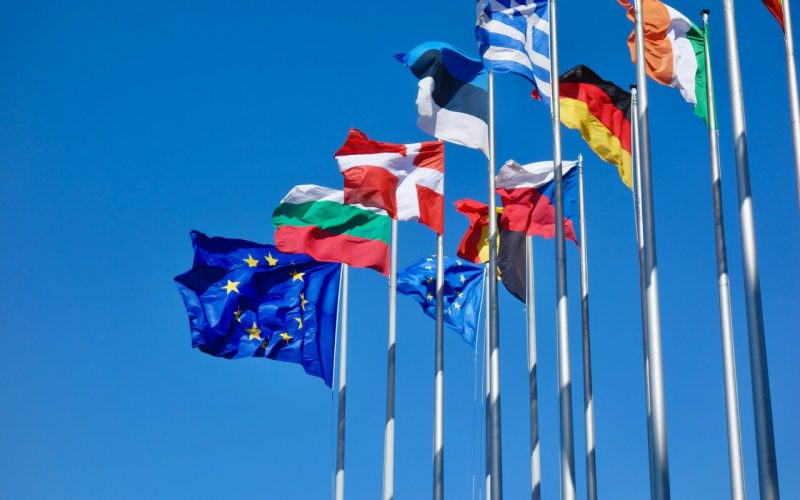For years, the European Union had a habit of drifting into symbolic politics, where elegant regulation mattered more than real-world outcomes. Ideology often drove policy, while pragmatism took a back seat. But now, in three very different areas—defence, energy, and food labelling—the EU is showing it can correct course. The return to defence, the re-embrace of nuclear power, and the quiet abandonment of Nutri-Score all signal that Brussels, when it really must, can rediscover common sense.
The end of pacifist illusions
Nothing captures this shift more clearly than Europe’s approach to defence. Russia’s war on Ukraine, coupled with signs of US disengagement, has forced Europeans to face uncomfortable truths. For decades, many governments over-relied on Washington and refused to take a realistic look at the developments in its neighbourhood, specifically Russia’s growing aggression since the invasion of Georgia in 2008.
Rather than pushing back decisively and preparing for a future where Russia under Putin would shed the veneer of partnership with the West, the EU, primarily driven by Berlin, opted for appeasement. The Ukraine war, however, has all but shattered this naive Weltanschauung. Germany, long defined by caution, is now undergoing a historic rearmament. Chancellor Olaf Scholz has called this a “Zeitenwende”, a turning point, and promised to transform the Bundeswehr into “the best equipped force in Europe” .
Defence spending is set to rise to €108.2 billion by 2026, a level unimaginable only a few years ago. A full brigade is being stationed in Lithuania, procurement is being streamlined, and Berlin’s ambition to build the EU’s strongest army is continuously and openly discussed under Chancellor Friedrich Merz, whose cabinet even passed a draft bill that will introduce voluntary military service and could also lead to conscription if needed.
Still, analysts warn that speed is crucial. As a Chatham House analysis put it, “the question is not whether Germany will rearm, but whether it can rearm quickly enough”. The point, however, is that the debate has shifted. It is no longer about whether Europe should take responsibility for its defence, but how fast it can deliver. An approach grounded in real-world development has replaced wishful thinking.
Nuclear energy’s quiet comeback?
A similar realism is reshaping Europe’s energy policy. Many EU countries formerly hooked on fossil fuels are looking to nuclear to reduce that dependency, while others are considering reversing their long-held uncompromising opposition to nuclear power.
For example, Poland just announced plans to build Europe’s first BWRX-300 small modular reactor (SMR), a breakthrough in both technology and strategy for a country long tied to coal. For Warsaw, the move is not only about decarbonisation but also about security of supply in a post-Ukraine war world. Poland’s move has undoubtedly been buoyed by a rather positive view of nuclear power among the Polish public. A similar trend is visible across the Union: in a marked reversal of attitudes, the European public at large has notably been more supportive of the technology in the wake of Russia’s assault on Ukraine. This has underpinned a slow if steady return of nuclear energy to the European policy mainstream.
In May this year, Belgium reversed the phase-out of reactors, an extraordinary move given the pledge to do so held for 20 years, while Denmark and Italy are openly reconsidering nuclear after years of opposition. Even Germany, the EU’s most stalwart anti-nuclear power, is making cautious moves to revisit the shutdowns of recent years under Chancellor Friedrich Merz. This mood change is also mirrored at the European level, where the European Commission this summer included nuclear fission among the sectors eligible for EU funding in its 2028–2034 budget framework in a symbolic yet important reversal of previous exclusion.
This new momentum is a recognition of the reality that for all the promise of renewables, Europe needs reliable baseload power to underpin a decarbonised grid in a world where tectonics shifts are unfolding and where geopolitics has returned with a vengeance. Nuclear is no longer a political taboo but an increasingly accepted pillar of energy security.
Nutri-Score end with a whimper
Compared with tanks or reactors, food labels may sound trivial but years of debate about the French Nutri-Score label that has occupied the highest echelons of European policy-making show the emotional significance of this topic. Just the more telling, then, that Brussels earlier this year decided to quietly abandon Nutri-Score, in a rare acknowledgement that a bad idea that proves unworkable is not worth pursuing merely for the sake of it.
Nutri-Score promised simplicity but distorted more than it clarified. It confused shoppers and its impact on dietary choices was at best small to none. Olive oil and other staple foods were branded unhealthy, leading to strong political (and later, scientific) resistance to the label from countries as varied as Italy, Spain or Romania, to name a few.
Brussel’s decision to remove Nutri-Score as an agenda issue is a tacit admission that the model never worked as advertised. Yet this is not a sign of weakness. On the contrary, it’s an encouraging act of self-correction and common sense.
The return to defence spending, the revival of nuclear power, and the end of Nutri-Score may not be equally dramatic policy decisions. Nutri-Score is an overdue correction whereas the focus on nuclear and armaments are revolutions. But they all matter, because they show that the EU can still adapt when it must.









